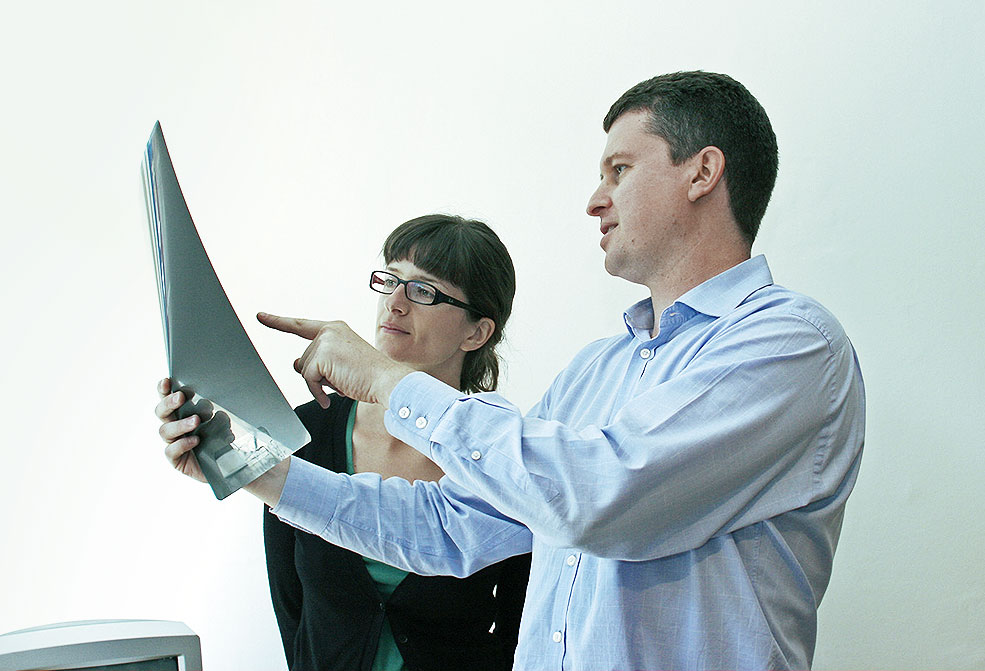
We normally recommend that you see a chiropractor first if you have back pain, but our team approach to patient care means you will be referred to another practitioner at Broadgate to help your recovery, if necessary. For the most common types of back pain, chiropractic treatment alongside physiotherapy exercises is often the best solution. We use tried and tested treatments such as manipulation, mobilisation and exercises as well as posture and lifestyle advice.
Spinal discs are made up of fibrous outer rings and an inner soft gel-like ‘cushion’ and sit between each of your spinal bones (vertebrae), helping movement and acting as shock absorbers. Discs don’t slip, the term ‘slipped disc’ often refers to disc injuries such as a bulge, tear or prolapse. These sometimes cause pressure on the nerves that exit your spine causing pain in your back, or ‘radiating’ pain spreading out where the nerves pass. Leg pain can be caused by nerve irritation or pressure in the lower spine. Just because you have these symptoms, however, it may not be a ‘slipped disc; other problems can have similar pain patterns.
The evidence and guidelines for medical practitioners state that spinal manipulation and exercises can help back pain, especially if carried out within the first six weeks. The longer you have been in pain, the longer it may take to improve with treatment. We will advise you of your likely recovery time, and how to minimise the chances of the problem happening again. Early treatment and exercises are important, but treatment and exercises are also effective at treating long-standing or chronic pain.
Most back problems are diagnosed using a careful back examination and other tests such as muscle and nerve checks and imaging such as an MRI scan is not required. Occasionally it’s necessary to order X-rays or an MRI scan; this something your practitioner at Broadgate will discuss with you at your consultation.
Poor posture may lead to back pain. Your chiropractor at this clinic may advise you to make postural changes if you: